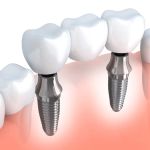How Stress Affects My Oral Health and Teeth: Understanding the Connection
- Understanding Stress and Its Effects on Oral Health
- How Stress Directly Affects Your Teeth
- The Impact of Stress on Your Gums
- Stress and Bruxism: The Teeth Grinding Connection
- Real-Life Case Study: Managing Stress for Better Oral Health
- How to Reduce Stress for Better Oral Health
1. Understanding Stress and Its Effects on Oral Health
Stress is a common experience in modern life, and while it affects the body in various ways, many people don’t realize that stress can also have a significant impact on oral health. Whether it's the result of work pressure, family concerns, or financial worries, stress can manifest itself in several ways that affect your mouth and teeth. Understanding the link between stress and oral health is key to preventing damage and maintaining a healthy smile.
When we experience stress, the body responds by producing a hormone called cortisol. While cortisol helps us cope with stressful situations, chronic stress can lead to an overproduction of cortisol, which can negatively affect various parts of the body, including your mouth. High levels of cortisol can weaken your immune system, leading to increased inflammation and a higher likelihood of developing oral issues like gum disease, cavities, and more.
2. How Stress Directly Affects Your Teeth
Stress can directly affect the health of your teeth in several ways. Here are some of the common dental issues that arise due to stress:
- Teeth Grinding (Bruxism): One of the most common effects of stress on teeth is bruxism, or the involuntary grinding or clenching of teeth, especially at night. This can lead to worn-down teeth, jaw pain, and even fractured teeth. Bruxism is often a subconscious response to stress and anxiety, and if left untreated, it can cause long-term damage to your teeth and gums.
- Tooth Sensitivity: Stress can weaken the enamel on your teeth, making them more vulnerable to sensitivity. This can lead to discomfort when eating or drinking hot, cold, or sweet foods and drinks.
- Cavities: When under stress, many people neglect their oral hygiene routine or experience changes in their eating habits, such as snacking on sugary foods. This combination can increase the likelihood of cavities, as sugar feeds the bacteria that cause tooth decay.
- Dry Mouth: Stress can reduce the production of saliva, leading to dry mouth. Saliva is essential for neutralizing acids in the mouth, so a reduction in its production can increase the risk of cavities, gum disease, and bad breath.
By understanding these stress-induced dental problems, you can take proactive steps to protect your teeth and gums from further damage.
3. The Impact of Stress on Your Gums
Stress doesn’t just affect your teeth—it can also have a significant impact on your gums. The mouth is often one of the first places that stress manifests itself, leading to inflammation and gum disease. Chronic stress can exacerbate gum conditions like gingivitis and periodontitis.
When you're stressed, your immune system is weakened, making it harder for your body to fight off infections. This is especially important when it comes to your gums, which can become inflamed, bleed, and recede if not properly maintained. Gum disease, if left untreated, can lead to tooth loss and other serious oral health issues.
Maintaining good oral hygiene, managing stress effectively, and visiting your dentist regularly can help prevent gum problems related to stress and keep your mouth healthy.
4. Stress and Bruxism: The Teeth Grinding Connection
Bruxism, or teeth grinding, is a direct consequence of stress, and it can have a serious impact on your oral health. When you’re stressed, you may clench your teeth during the day or grind them at night. This constant pressure on your teeth can cause a variety of dental problems, including:
- Worn-down teeth: The constant grinding can wear down the enamel on your teeth, making them more susceptible to decay and sensitivity.
- Jaw pain and headaches: The pressure from grinding can lead to muscle strain in your jaw, causing pain and tension. It can also contribute to tension headaches.
- Tooth fractures: In severe cases, bruxism can cause cracks or fractures in your teeth, which may require extensive dental treatment to repair.
If you suspect that stress is causing you to grind your teeth, it's important to speak with your dentist. They may recommend solutions like wearing a night guard or exploring stress management techniques to help prevent further damage to your teeth.
5. Real-Life Case Study: Managing Stress for Better Oral Health
Let’s consider Sarah, a 32-year-old professional who had been dealing with significant work-related stress for several months. Sarah noticed that her teeth had become increasingly sensitive and her gums were inflamed. After seeing her dentist, she was diagnosed with early-stage gum disease and bruxism, both of which were linked to her stress levels.
After discussing her lifestyle and stress management techniques with her dentist, Sarah was encouraged to start practicing stress-reducing activities such as yoga, meditation, and deep-breathing exercises. Additionally, she was fitted for a night guard to protect her teeth from grinding during sleep. Within a few weeks, Sarah noticed a significant improvement in her oral health, and the discomfort in her teeth and gums began to subside.
This case highlights the powerful connection between stress and oral health, and how managing stress can have a positive impact on your overall well-being.
6. How to Reduce Stress for Better Oral Health
Reducing stress is key to protecting your teeth and gums. Here are some practical tips that can help:
- Practice relaxation techniques: Activities like deep breathing, meditation, and mindfulness can help reduce stress and its negative effects on your body.
- Exercise regularly: Physical activity is one of the best ways to manage stress. Exercise releases endorphins, which help boost your mood and reduce anxiety.
- Maintain a healthy diet: Eating a balanced diet with plenty of fruits, vegetables, and whole grains can help keep your teeth and gums healthy. Avoid excessive sugar intake, which can contribute to cavities and gum disease.
- Get adequate sleep: Lack of sleep can contribute to stress. Aim for 7-9 hours of quality sleep each night to help your body recover and reduce stress levels.
- Visit your dentist regularly: Regular check-ups can help catch any dental issues early and prevent stress-related oral health problems from becoming more severe.
By incorporating these tips into your routine, you can better manage stress and protect your oral health.







 Nashoba Family Dentists4.0 (582 review)
Nashoba Family Dentists4.0 (582 review) Reichheld Ting Orthodontics - Westford5.0 (308 review)
Reichheld Ting Orthodontics - Westford5.0 (308 review) Bismarck Advanced Dental and Implants4.0 (657 review)
Bismarck Advanced Dental and Implants4.0 (657 review) Johnson Ebenezer DDS4.0 (12 review)
Johnson Ebenezer DDS4.0 (12 review) Children’s Dental FunZone - Pediatric Dentist & Orthodontist - Colton4.0 (26 review)
Children’s Dental FunZone - Pediatric Dentist & Orthodontist - Colton4.0 (26 review) Sandra L. Vargas, DMD3.0 (8 review)
Sandra L. Vargas, DMD3.0 (8 review) The Importance of Oral Health Education During Pregnancy for a Healthy Pregnancy
The Importance of Oral Health Education During Pregnancy for a Healthy Pregnancy Best Tips for Brushing Your Teeth Properly for Healthy Gums: Essential Techniques for Oral Health
Best Tips for Brushing Your Teeth Properly for Healthy Gums: Essential Techniques for Oral Health Why Skipping Dental Checkups Can Lead to Bigger Oral Health Problems
Why Skipping Dental Checkups Can Lead to Bigger Oral Health Problems Advantages of Porcelain Dental Restorations
Advantages of Porcelain Dental Restorations How Can Diabetes Cause Tooth and Gum Problems? Preventing and Managing Oral Health Issues
How Can Diabetes Cause Tooth and Gum Problems? Preventing and Managing Oral Health Issues Healthy Habits for Promoting Good Oral Health and Hygiene: Tips for a Healthy Smile
Healthy Habits for Promoting Good Oral Health and Hygiene: Tips for a Healthy Smile